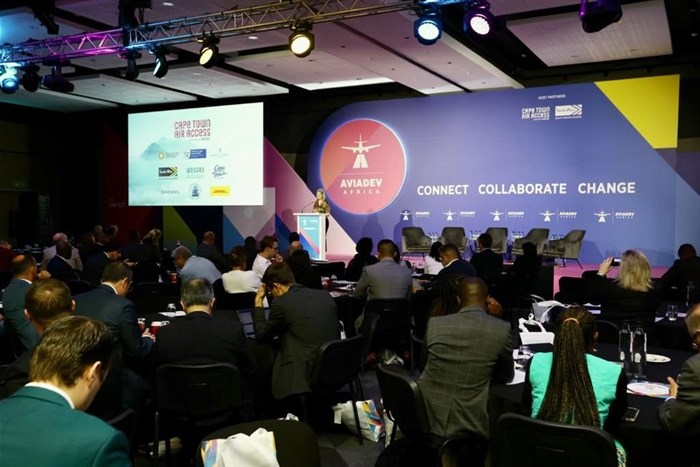
Delegates comprised over 280 route development specialists, airline and airport representatives, industry suppliers and tourism authorities.
Under the theme Connect, Collaborate, Change, marking the start of AviaDev Africa and setting the tone for the conference, South African Tourism hosted the official AviaDev Africa Reception Event which gave delegates the opportunity to network freely outside the constraints of the conference.
Prior to the start of the conference, the Cape Town Air Access team hosted the VIP Airline Day, where 50 of the top airline executives were treated to a day at the Spice Route Destination, showcasing the beauty of the Cape Winelands.
The three-day conference also included a route development training session, various panels and speeches regarding building profitable airline partnerships, the role of air cargo, diversifying airport revenues, e-flight and its possible applications for Africa, implementing practical technologies, financing African airlines as well as a deep dive into some of the global trends.
A connected continent
Wesgro CEO and the official spokesperson for Cape Town Air Access, Wrenelle Stander, commented: “AviaDev is the perfect platform to have critical route development discussions, and bring together the right industry professionals, as we hope to see a connected continent and a sector that has the power to create sustained economic growth in Africa. Hosting AviaDev Africa here in the Mother City presented us with an unmatched opportunity to be at the forefront of African aviation development, in a period of growth, following the Covid-19 pandemic. It also provided an ideal opportunity to bring together over 300 leading aviation professionals with an interest in Africa to Cape Town and the Western Cape, one of the most iconic destinations in the world.”

Mayoral committee member for economic growth at the City of Cape Town, Alderman James Vos, said: “Aviation is a key industry for Cape Town’s continued economic growth. This is why we fund initiatives such as Air Access which helps to land more flights that drive travel and trade towards the metro and province.
“This past month, Cape Town International Airport processed up to 30,663 passengers daily. In May, domestic and international passenger numbers recovered to almost 80% of that of the same month in 2019. Under the banner of aviation, we must look at opening up our air transport market even more. Where implemented, it has resulted in increased utilisation of airspace, more competitive fares and more choices for the travelling public. In order to optimise connectivity, we must liberalise measures and subsequently, enhance connectivity. This will undoubtedly positively impact tourism, employment and the economy at large.
“There is clearly demand for travel globally, and to our destination. And it must be our job to enable it, so that it thrives. While Covid-19-related barriers are now removed, we must not lose sight of others that exist in our economy and work with the same passion and determination to break through them too. This will be my passion and my focus. In doing so, we must leverage the lessons that we have learnt during these difficult times, where our resilience was once again tested.

“For me, one of the top lessons was that partnership works. By working together and leveraging the combined impact of different levels of government, and the private sector, you can move quicker, more effectively, and with greater success in achieving outcomes. Which is why, continuing to back the immensely successful ‘Air Access” collaboration, based within Wesgro, remains a top priority for my term.
“One of the principal missions of this team is to increase connections to the Western Cape, especially with the rest of Africa, so we can make it easier and more affordable to travel between our countries and so that we can attract more investment as well as increase trade,” concluded Mireille Wenger, Western Cape minister of finance and economic opportunities.”



